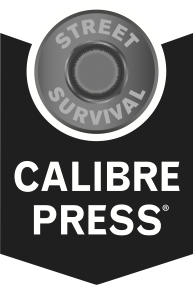Before we delve into a most serious topic, before you read my article, let’s take a few minutes out and review a song, as I try move to make a point. Go ahead. Go YouTube “Lies” by The Knickerbockers.
It’s OK. I’ll wait for you.

Want to write for Calibre? If you’re interested in having your work considered for publication in the Calibre Press newsletter, posted to the Calibre Press site or shared through Calibre’s social media channels, please drop us a note at editor@calibrepress.com. Please include a short description of who you are and the areas of expertise or general topics you may be interested in writing about. You can also send samples of your work. We’ll be happy to take a look.
Once you listen to it, listen again. From a non-law enforcement musical sense, I always thought this 1965 song was a cheap imitation of the Beatles. It sounds just like them. Even the part when the singer screams “Yeah baby” like Paul McCartney would have.
Though the song is a guy singing to a girl (I assume) the lyrics that stand out above any other apply to us in law enforcement and this article.
“Lies, lies/I can’t believe a word you say/Lies, lies.”
The Debate
I attend the PERF Conference on Miami Beach during the last week of May. There were many great topics discussed and debated over the four days. But the one that grabbed my attention the most as a police chief, was the discussion about lying. What should the top administrator do with the officer who does not tell the truth? Should lying be a “death sentence” in law enforcement?
Many debating chiefs talked about how the officer (quite frankly, it can be any rank up to and including chief) must be benched after being caught up in a lie or substantiated on a lying charge (complaint). The State Attorney/District Attorney will no longer put such an officer on the stand. Heck, any Defense Attorney worth his weight would shred the State’s witness on the stand, surely putting doubt in the judge and/or jury. Lying makes the officer professionally impotent.
Lying can take the form of many shapes. It might be as innocuous as calling in sick but later seen at rock concert. Or it can be major, like perjury on a witness stand—and everything in between.
A Chicago Tribune article looked at the period of 2012 – 2016. In that time (and I quote from the article) “Over four years, … 11 Chicago police officers had disciplinary charges brought against them for writing a false report or making a false statement. None of the cases, though, was for false testimony in court, according to police disciplinary records.”
Consequences?
So here is the gist of my concern: Let’s put aside false testimony in court. I think most of us would agree that if you go down that road, you need to go. You are tarnishing the badge. That seems pretty clear cut.
But what do you do about the writing a false report or making a false statement? I would think the aforementioned agreement is a bit more convoluted now. The reputation of the officer is forever tarnished. But is the badge? It’s all about the badge being tarnished.
One debater at the PERF Conference, had a one line quip that has been the mantra at his agency: “You lie, you die!” I’m not so sure I agree with the choice of words, but I surely understand the sentiment behind it.
Our word is our bond. We can be called many things. Hopefully good, but some perhaps not so good. Nonetheless, there is nothing worse than being called dishonest and untrustworthy. Being called a liar is not too far behind.
So here is where the metal meets the road: I know you don’t lie. I can tell. This I am certain of. But what’s your feeling about those that you know have lied via writing false reports or making false statements? That is a question you must ask yourself regardless of rank. Do you accept it and say, “It’s not my problem?” Do you report it? Do you talk yourself into believing that he/she will get caught eventually and whatever happens, so be it?
Now about those who write false reports and/or make false statements, suppose your teenage son/daughter is the recipient of such a false statement or report? Does it become more important now? Fact is, our collective response to liars within the ranks is more important than “their” dishonest actions. Whatever it is that we accept by not ostracizing it, will become the norm, along with the reputation it proffers.
My Take?
As chief of police, my mantra (a bit less brusque than what was presented earlier in the article):
YOU LIE, GOODBYE!
I just don’t have time for you. Some of you will agree. Others will not. To those, I would ask that you inquire as to why you feel that way. Why would you think that second chances are needed in a job where we have heard since in our earliest days in the academy, “Whatever you do, don’t lie about it”?
I want this article to give you food for thought. Where do you stand?










0 Comments